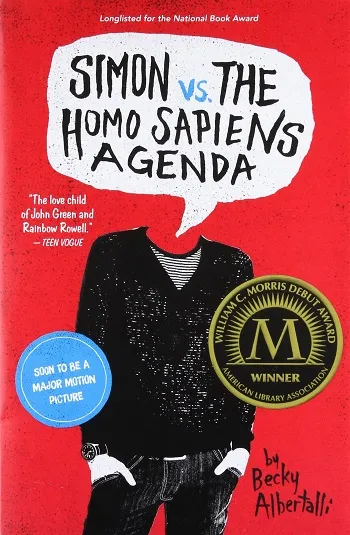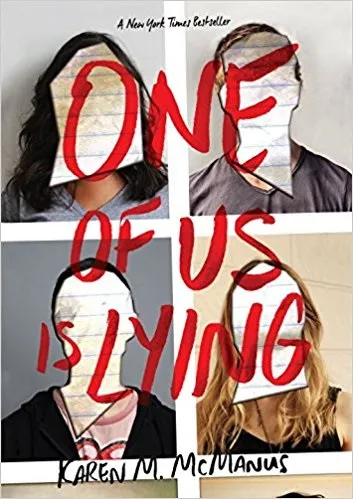The Headless Women of Hollywood is one of my favorite internet things of the last few years. Marcia Belsky started the project to “bring attention to the still standard practice of fragmenting, fetishizing, and dehumanizing the images of women we see in film, TV, book covers, and advertisement.” Many of the images covered over on the Headless Women Instagram account are what you’d expect:
movie posters for
bro-ish films where women are no more than
set pieces. However, other notable posters are for female-led films, which is even more baffling! (See
this,
this, and
this.) Books aren’t covered as heavily in the project, but you can probably recall lots of puzzling covers featuring headless men and women. In fact, there’s a whole
Goodreads List devoted to this. However, I’ve noticed a few exceptions in recent years where headlessness on book covers is used purposefully. Let’s dive into those.

One criticism the Headless Women of Hollywood project makes of headless covers is that they strip characters of their identity. However, Albertalli’s
Simon vs. The Homo Sapiens Agenda is about a search for identity. If you haven’t read the book (or seen the excellent film), it’s about a gay 16-year-old who isn’t ready to reveal his sexual preference yet. He also spends a lot of time online, where he meets a guy named Blue and begins a romance with him. The headlessness on the cover here seems purposeful, in that it conveys Simon’s anonymity online (which SPOILER ALERT doesn’t last long) and his search for identity.

In
One of Us is Lying, five teens enter detention and only four make it out alive. This
Breakfast Club/murder mystery mashup is a thrilling read. Each of the characters represented on the cover is hiding a secret, and one of them just might be a killer. On the cover, each of their faces is covered by a scrap of paper in order to communicate that these characters have stories that haven’t been put on the page yet. As we read on, those pages get filled in, and only then do we see the each student as a rounded, whole character. I really love this use of headlessness (and highly recommend the book).

Similarly,
An Untamed State’s cover features the main character made faceless. In the novel, Mireille Duval Jameson, a Haitian-American whose parents have moved back to Port-au-Prince, goes to visit them with her American husband. In a shocking turn, she is kidnapped by a vicious militant, who says he wants money from her rich father. She survives, but only after brutal torture and rape. After she is released, Mireille is not the same person she once was. She goes back to America questioning if her father loves her (due to his hesitancy to pay the ransom), why she made the choices she did while in captivity, and if she can stay with her husband after this terrifying event. The beautiful book cover shows Mireille looking back, and this is what she does throughout most of the novel. She looks back at her perfect life before the event and at what she had to do to survive during it. The cover also conveys her hesitancy to look at herself or to let anyone else get close to her after her kidnapping. Whereas she once had an exciting, intimate relationship with her husband Michael, she understandably rejects vulnerability afterward. Additionally, the cover mirrors the reader’s wish to look away at times. As I was reading Gay’s beautiful story, I remember wincing, crying, wishing I could skip over some of the tough parts. The cover model, turning her head, was me.
Have you seen any examples of purposeful headlessness/facelessness on book covers?
For more on book covers, check out
3 Cringe-Worthy Book Covers or
Judging Books By Their Covers: An Experiment.



